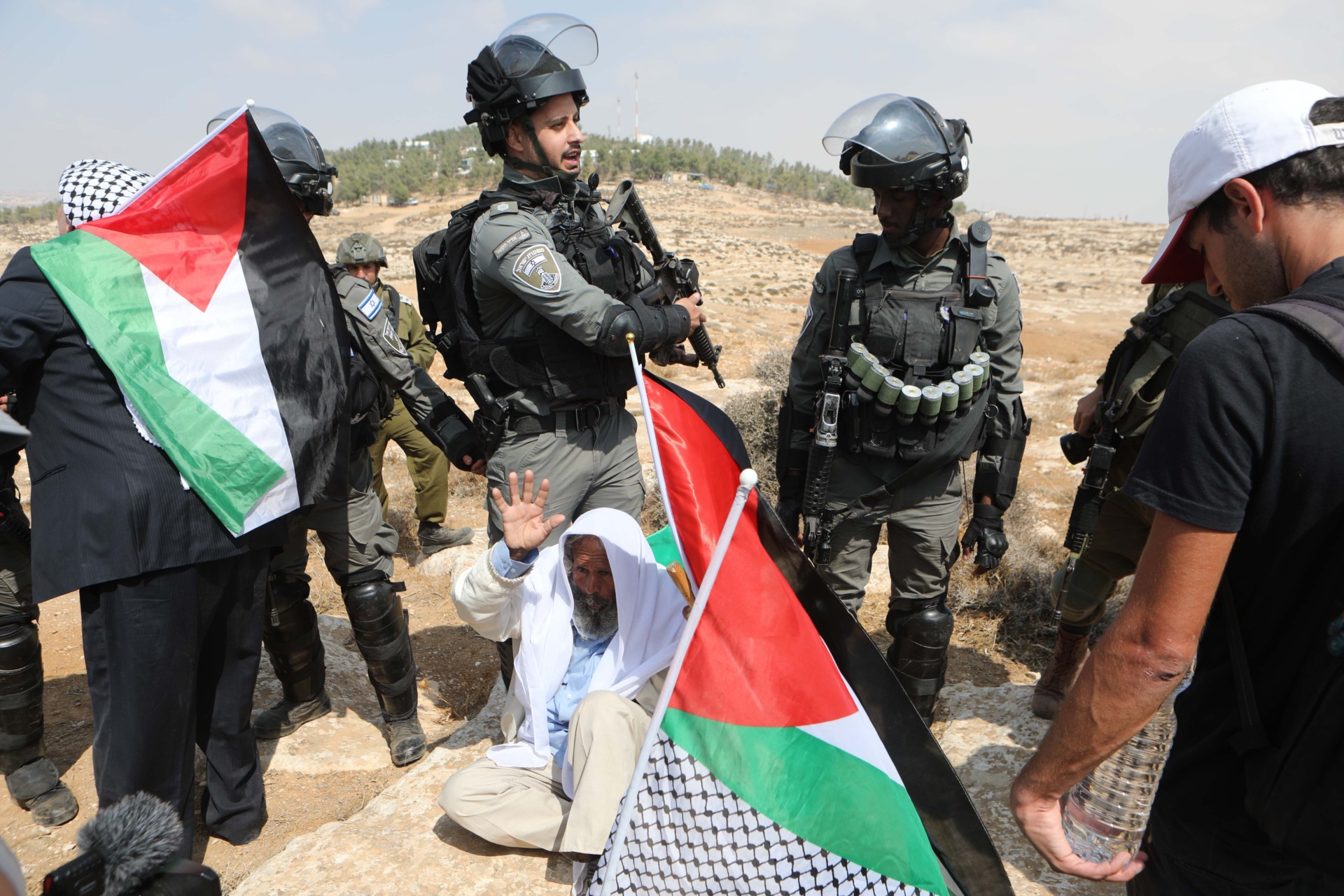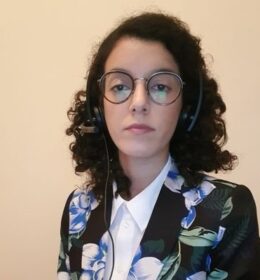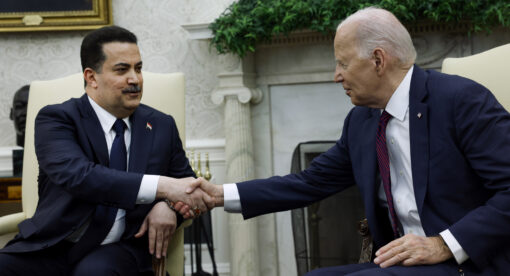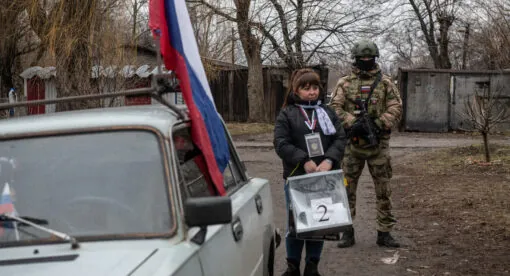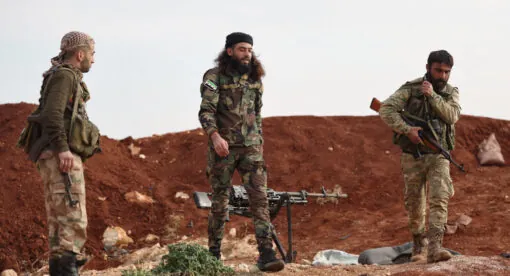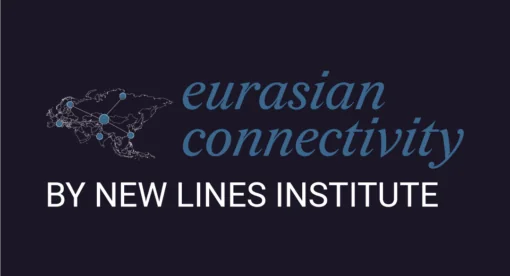In the face of Israeli attempts to shut down Palestinian civil society groups, activists – including those in the West Bank and Gaza – came together during a “Unity Intifada” to communicate their shared concerns. Although these groups are separated by geography and have different relationships with the Israeli government, they are more connected now than before. This connection is likely to make the resistance harder for Israel to fight.
Editor’s Note: This Net Assessment is split into two parts, with part one focusing on Jerusalem and the Green Line and this part on the 1967 occupied territories. The division along this line reflects the timeline of events while fully acknowledging the shared demands and concerns of Palestinians across these spaces during the “Unity Intifada.”
After Israeli actions targeting Palestinians in Jerusalem during Ramadan, Palestinian communities on both sides of the Green Line took action in what activists called the “Unity Intifada.” The protests and other forms of civil disobedience prompted Palestinian communities divided by geography and politics to connect with each other more, and as a result Palestinian activists began honing their skills in outreach, advocacy, digital activism, and other areas. These new connections and skills are likely to make the Palestinian resistance more effective and more difficult for Israel to fight.
West Bank
Palestinians in the West Bank – numbering around 2.75 million – deal with both the Israeli occupation and the Palestinian Authority (PA), which has polarized Palestinians and impacted social cohesion in such a way as to make mobilization and collective action much less likely. These trends are corroborated in previous work, and activists today confirm that these dynamics continue.
It is for this reason that we see in the West Bank a rich ecosystem of outward-facing NGOs and advocacy organizations, and very few actors that are inward-facing. These outward-facing organizations play a crucial role in communicating what is happening on the ground, facilitating advocacy with the Palestinian cause abroad, and serving as facilitators for on-the-ground networking; nevertheless, their main audience is international.
These dynamics are illustrated well in the example of Rabet, or the Palestinian Institute for Public Diplomacy. Rabet is outward facing in the sense that it is focused on amplifying local concerns for external audiences. The institute’s theory of change is to generate interest in Palestine on a cultural and social level, raise awareness of the Palestinian cause through digital activism, facilitate educational resources by depending on other research-specific actors in Palestine, and then mobilizing external advocacy, particularly in North American and Europe. But Rabet has also facilitated connections between different Palestinian groups mobilizing around repression in Al-Aqsa, the displacements in Sheikh Jarrah and Silwan, settlement activity in the West Bank, and human rights violations in Gaza. It enters into coalitions with other organizations and keeps lines of communication open to better coordinate work.
Nonetheless, groups that attempt to mobilize Palestinians in the territories or resolve internal fragmentation are limited in number and scope. Indeed, the latest wave of protests in the West Bank – in solidarity with Palestinians in Jerusalem and Gaza – were mostly spontaneous displays of frustration. The economic strike on May 18 was the exception. Otherwise, the protests were not called by any group or coalition and were not even in coordination with each other. Moreover, according to activists, the protests and actions that have continued to a lesser degree following the main events of May are more random tactics than long-term strategies.
The Palestinian political landscape in the territories is dominated by Hamas and Fatah, neither of which are interested in popular mobilization. Fatah is dominated by an older generation that has tied its fate to the persistence of the PA in its current form and the maintenance of the Oslo status quo, meaning popular mobilization is a threat to its role as a partner to Israel, a subcontractor of the occupation that maintains Israeli security and Palestinian acquiescence. Hamas in the West Bank, alternatively, has been heavily targeted since the failed elections of 2006 and is not allowed to function on a political or social level without restrictions; Fatah faces a similar situation in Gaza. Hamas may speak the language of popular mobilization, but it is pursuing an armed resistance strategy and has not played a significant role organizing the protests that erupted in response to Israel’s actions in Jerusalem or the airstrikes on Gaza.
Activists in the West Bank are taking steps to find solutions to this internal fragmentation and generate new leadership. One such attempt is Jeel al-Tajdeed al-Democraty, or the New Democratic Generation, which members of the group describe as a leadership “incubator” intended to democratize the Palestinian political system by providing an opportunity for the participation of Palestinians everywhere rather than in the West Bank alone. According to members, the latest wave of protests gave them the opportunity to strengthen their internal group cohesion and work together to coordinate a shared response.
The group began as a virtual parliamentary list to run concurrently with the canceled Palestinian legislative elections, but it now is moving away from virtual elections to build sustainable networks across historic Palestine. They are currently working on creating a youth body with the goal of breaking “monopolies of power that play to a particular Oslo paradigm.” They do not see themselves as the organization able to mobilize all Palestinians, but they want to restart discussions of mobilization, reforming the Palestinian Liberation Organization, and getting the municipalities in the hands of new leadership.
Although a very recent addition to the civil society ecosystem, Jeel al-Tajdeed’s specific focus on the polarization and mobilization problem at the heart of Palestine’s political stagnation makes the group unique.
Gaza
Gaza’s 2 million residents have been under Israeli blockade since 2007. Because they do not have direct contactwith the Israeli state and little impact on the Israeli economy, Palestinians in Gaza struggle to address the restrictions and violence the Israeli state imposes on them in addition to the ones created by Hamas and other factions in the territory. Gaza’s residents are repressed by air strikes, in a policy likened to “mowing the grass,” and by control over all the entry points to the strip. Protest movements have had limited impact on Israel and little effect on the Israeli occupation. For example, in the “Great March of Return” in 2018, thousands of Palestinians were injured or killed with little recourse. with little recourse.
Nevertheless, civil society groups in Gaza, such as Almezan Center for Human Rights, the Palestinian Independent Commission on Human Rights, and the Palestinian Human Rights Organization Council (an umbrella organization coordinating groups in other parts of the territories with Gaza) document human rights violations and conditions for Palestinians in the Gaza Strip. This material is often used to inform digital activism by Palestinians elsewhere. Activists in Gaza are also engaged in initiatives, such as Jeel al-Tajdeed’s youth forum, to connect with Palestinians in other parts of the country. However, the blockade on Gaza poses unique obstacles and challenges to the efficacy of these actions.
The Unity Intifada
These dynamics have played out in recent protests. Israeli provocations in Jerusalem during Ramadan led to widespread action in Palestinian communities on both sides of the Green Line, which activists named a Unity Intifada. The uprising included protests, civil disobedience, and the large-scale economic strike on May 18.
Hamas’ decision to launch rockets and Israel’s airstrikes against the besieged Gaza strip accelerated these protests. Official Israeli institutions such as the police as well as unofficial armed groups responded with reprisals against Palestinians. These reprisals have included mass arrest campaigns, mob violence, and police brutality which resulted in over 20 dead in the West Bank, one dead among Palestinian citizens of Israel, hundreds injured, and thousands under arrest. More than 90% of those arrested were Palestinian, though there is documentation of Israeli participation in lynch mobs and riots. In Gaza, 11 days of Israeli airstrikes killed 242 civilians, 67 of them children, and displaced over 100,000 people.
Following the protests in solidarity with Jerusalem and in anger over the airstrikes on Gaza that human rights organizations have noted amount to war crimes, Palestinian citizens of Israel continue to lead initiatives to bolster the Palestinian economy and build a sense of unity across communities. And whether or not Palestinian mobilization in response to these conditions is sustainable for a week, a month, or a year, its longevity is somewhat tangential to its true impact. Indeed, some activists point out this is not a long-term strategy, but rather cumulative tactics.
Nevertheless, this moment has facilitated greater exchanges between Palestinian communities – despite geographic and political fragmentation – and stronger ties between activists. These connections have facilitated the building of skills in media outreach, advocacy, digital activism, and on-the-ground collective action. The building of organizational infrastructure will help facilitate faster and more effective resistance to the occupation in the future. Greater numbers of people are mobilized and politically aware, and they are able to engage in activism on the ground or digitally with more unified objectives.
The shift in discourse internationally undoubtedly reflects this success, and Western powers now have the opportunity to take the pulse of the Palestinian public, who are not interested in the policy prescriptions around a two-state solution, particularly the younger generation. They are providing an alternative to the impasse and demanding a reassessment of the Israeli state project overall. Changing course based on what these movements tell us is more prudent than continuing down the road of intractable conflict that will fuel greater escalations of violence and brutality.
Dr. Dana El Kurd is an Assistant Professor of Political Science at the University of Richmond. She is the author of “Polarized and Demobilized: Legacies of Authoritarianism in Palestine” (Oxford University Press, 2020). Dr. El Kurd’s work focuses on authoritarian regimes in the Arab world, state-society relations in these countries, and the impact of international intervention. She earned a Ph.D. in Government with concentrations in Comparative Politics and International Relations from the University of Texas at Austin and tweets at @danaelkurd.
The views expressed in this article are those of the author and not an official policy or position of the Newlines Institute.

